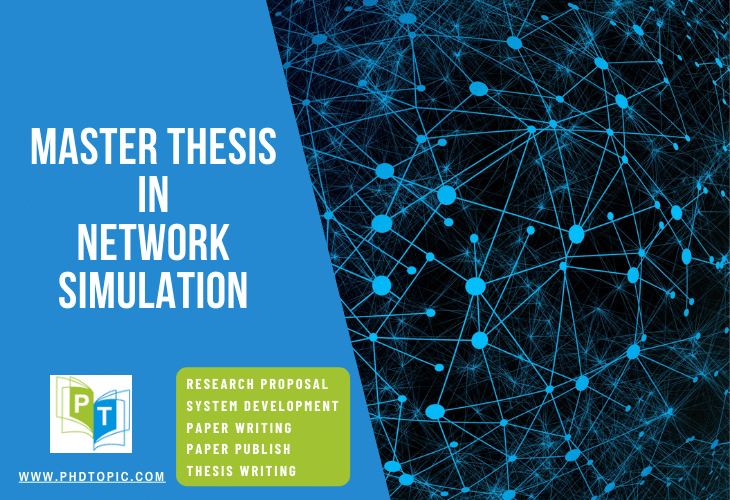Master Thesis in Network Simulation
Master Thesis in Network Simulation dedicated for our students to write best thesis with our world class academic writers. Due to network simulation’s advanced features, most of the students and scholars prefer projects in network simulation. It is defined as a process of model network behaviour using a variety of network simulation tools. Below, we briefly explain top network simulation tools used in current applications, but we work on all the simulators. It is provided for getting knowledge in network simulation tools and how to work with network simulators. To accomplish your projects using network simulation tools, contact us at any time.
 Thesis in Network Simulation
Thesis in Network Simulation
Master Thesis in Network Simulation is a study platform provided by us for students to learn about network simulation tools and currently where it cane used. Till now, we have provided 1000+ network simulation projects for our students. Network simulation validates networks, data centers, and enterprises, etc. It can be used in analyzing distribution communication utilities and railway signaling etc. If you are not starting your master thesis in network simulation, come to us.
We begin now and make happy ending…..
Network Tools and Current Research Areas
Network Simulator 2(NS2):
-NS2 is a simulation tool designed for simulating computer-based communication networks. This simulator aims to support TCP routing and multicast routing protocols over targeted networks (wired and wireless).
Research areas for NS2 are:
- Routing protocol design for wired and wireless networks (wireless sensor, mobile ad hoc, and satellite networks) including unicast, multicast, and hierarchical routing protocols, e.g., AODV, DSR, ZRP, TORA, AOMDV, and also mac layer protocols (IEEE 802.11 and 802.16)
Network Simulator 3 (NS3):
-NS3 is an extended version of NS2 developed for research purposes. It is an open-source discrete-event network simulator, written in C++ and also bindings in python.
Research areas for NS3 are:
- Wireless sensor networks
- Wireless body area networks
- Vehicular Ad hoc networks
- Software Defined Networks
- Internet of Things
- Wireless mesh networks
- Network security and also communication based networks
OPNET:
-OPNET is a network simulation tool which is mainly also for telecommunication purpose. It consists of a high-level user interface and is written in C and C++.
Research areas for OPNET are:
- IEEE 802.15.4 based channel models
- WirelessHART MAC
- QoS in heterogeneous networks
- Communication technologies: 3G/4G/Wi-Max, Zigbee and also Bluetooth
- TDMA based IWSAN also using priority enhanced routing algorithm
- Gradient based Network also based on 2-hop velocity routing algorithm
OMNET++:
-OMNET++ is a discrete event simulator tool also based on GUI. It is suitable for all types of networks, like wired and wireless networks. OMNET++ interface with other simulators: Veins, ANSAINET, INETMANET, SimuLTE, and also in Oversim.
Research areas for OMNET++ are:
- SmartGrid Communications: Mosaik and Omnet++
- Combine energy awareness and also channel models: MiXiM, STREAMsim and PaWis
- Testbed environments: OMNeT++
- Modeling quantum optical components: OMNET++.
Other Network Simulation Tools
- GloMoSim
- J-Sim
- Qualnet
- Cooja
- SSFNet
- TMNetSim
Our Highly Potential Topics for Network Simulation
- Advanced cluster, web systems and also in content switch
- Network Measurement techniques
- Multipath routing
- Scalable and also in collaborative systems
- Wireless network security
- Wireless multimedia gateway system
- Energy efficient MAC protocols
- Bio-inspired network security
- Large scale data analysis and also crawling
- RF-signal strength for indoor localization
- Private key cryptography in RFID
- Bio inspired security also in MANETs
- Routing for Fuzzy also based ACO in MANETs
- Privacy preservation against physical attacks also in RFID
- Opportunistic social sensing also for smart city applications
- Outlier Detection also in wireless communication
- Synchronized Global Sleep Schedule also for WSNs
